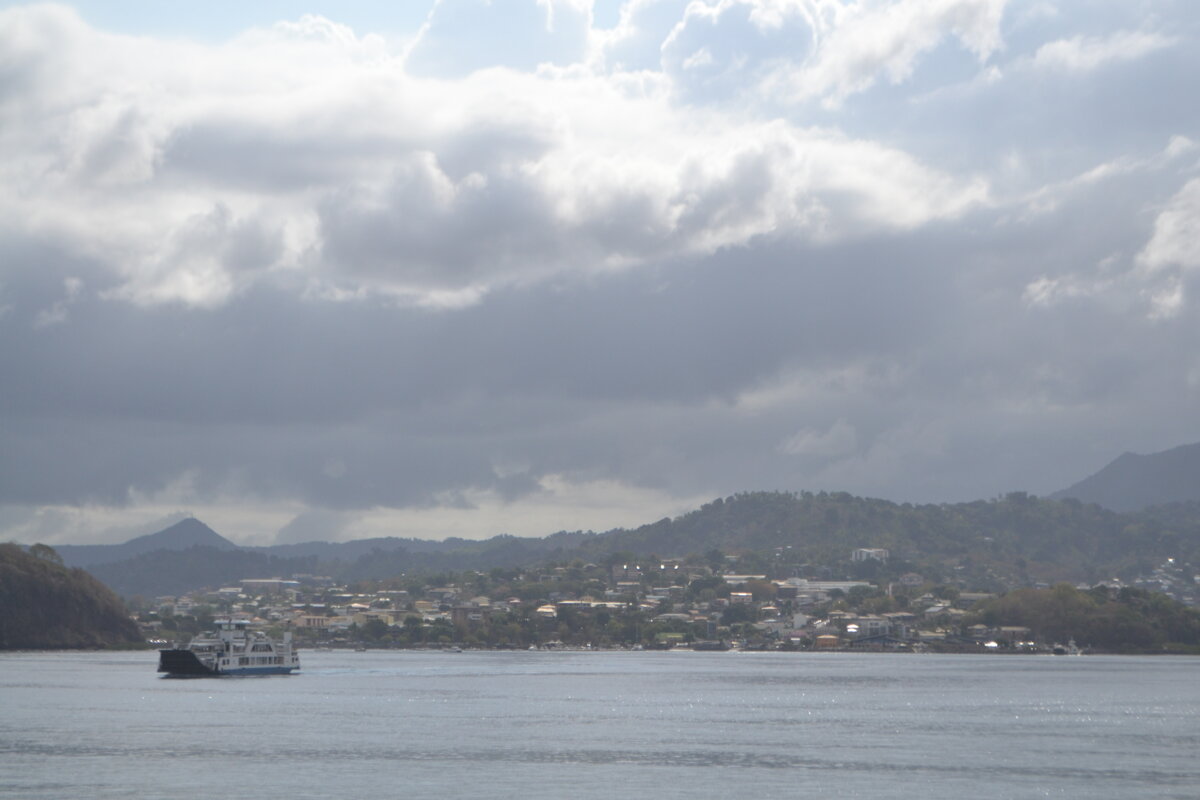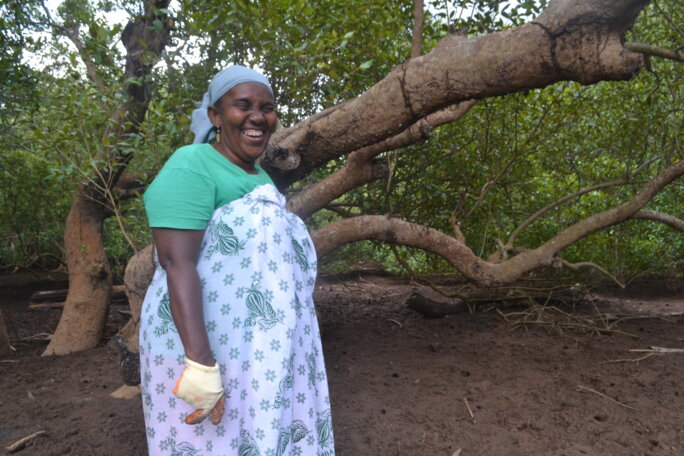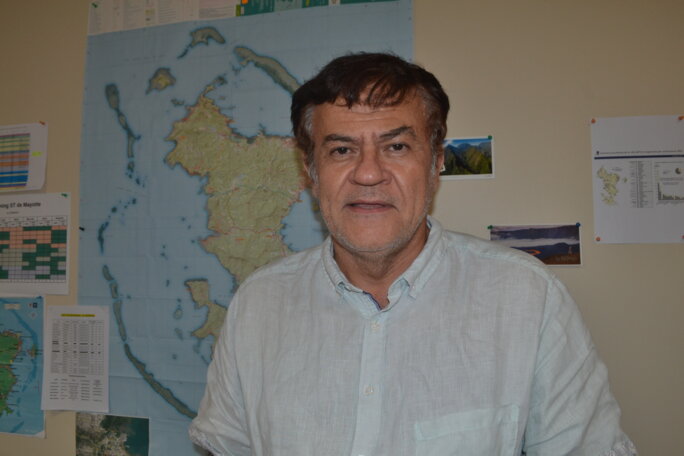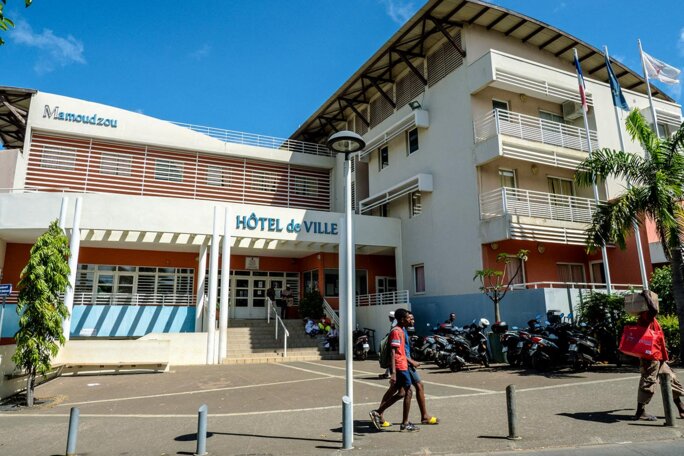During the period when France’s 12 current overseas territories and départements were among its many colonies, the salaries paid there to civil servants and a number of other state employees were substantially higher than those paid on the mainland. Known as the “supplément colonial” it was intended as an incentive to attract candidates to civil service and other public sector posts in the far-flung lands.
The system continues today, albeit under a different name, which allows for several categories of public sector employees to be paid paid between two and five times more than their colleagues on the mainland.
When, in 1946, some of these overseas territories were given the status of département – the name given to France’s 101 local administrative areas, equivalent to a county – the bonuses paid to these public sector staff was written into the statutes of the départements and remains today mentioned on wage slips. The multiplication of salaries (now referred to as “indexed” pay) varies, from 0.43 in the Indian Ocean département of Mayotte to 2.08 in the South Pacific collectivity of Wallis and Futuna.
Meanwhile, the number of people living under the poverty line in these 12 overseas lands is, variously, between twice and ten times higher, in terms of percentage of the local population, than in mainland France.
In this first report from a four-part series on the social and economic effects of the continued payment of the supplément colonial, Mediapart travelled to Mayotte, an Indian Ocean archipelago lying between Africa and Madagascar. It is essentially made up of two islands – Grande-Terre, the largest, and Petite-Terre – with islets surrounding both.
Mayotte is the poorest of any French département, a status it acquired following a local referendum in 2009 (it was previously a French overseas territory). Among the recorded population of around 310,000 (although probably much more, due to illegal immigration), almost eight people out of ten live below the poverty threshold, one person in three of working age is out of work, and life expectancy is 75 years.

Enlargement : Illustration 1

On the southern shoreline of Grande-Terre, Mediapart caught up with a group of around 50 people advancing in a line through the mangrove swamp, searching for rubbish that has been washed inland. They were paid to do so by a local association called Nayma, which aims to help people who are financially insecure by offering them professional training and employing them on environmental projects. In this case, near the village of Chirongui, they were clearing the swamp of plastics and dumped domestic appliances.
Removing fridges, cables, plastic bags and bottles while wading through the Indian Ocean water past mangrove roots and layers of dead leaves is hard work. One of the group was Moshtoiri, a forty-something mother-of-one from the village of Bandrélé, about ten kilometres away. Despite the heat and tiring work, she said she was “happy to be here”.
“It’s an official job, it’s better than working in the informal economy because it can be declared to the tax office,” she said. Moshtoiri receives the monthly revenu de solidarité active, or RSA, a French social welfare benefit for people with no, or very low, income. She says that in all, she has a monthly income of around 900 euros, and is satisfied with her lot, although she hopes that once she completes professional training she could “one day earn 1,500 euros per month”.
If she manages to do so without becoming employed by the state, Moshtoiri would be a notable exception.

Enlargement : Illustration 2

“Here, median income, meaning the salary level below which is half of the population, while the other [upper] half earn more, is 260 euros,” explained Bertrand Aumand, director of the Mayotte office of France’s national institute of statistics and economic studies, INSEE. “That’s six times less than in mainland France. Seventy-seven percent of the archipelago’s population live below the national poverty line, [which is] 1,010 euros per month.”
There is also, Aumand added, a specific local poverty line, which is defined, like for that of mainland France, as being those living on an income that is 60% of the median income, and below which he said were “42% of the population”. More precisely, 42% of the population of around 310,000 survive on less than 156 euros per month.
Poverty in Mayotte is institutional. “Basic welfare benefits are very low here,” commented Moussa Mandhira, coordinator for work integration contracts at the association Nayma. “The RSA is divided in half compared to the mainland. Aid for regaining employment is also lower than on the mainland. Moreover, it’s got a different name – ‘aid for regaining employment in Mayotte’. All the measures for social assistance are specific to Mayotte and they are at a very inferior level to those on the mainland.”
The minimum legal wage is 25% below that on mainland France, which explains the social security contributions organisation, URSAAF, is because it “takes into account the local economic situation”.
But there is a category of public employees whose salaries, far from taking the “local economic situation” into account, are very generously increased by up to 43% in comparison to what they would be paid on mainland France. On their pay slip, on top of this salary “multiplier index”, is also an expatriation bonus and an allowance for the cost of rented accommodation.
“If there is this extra-remuneration, it’s that there is a particular situation,” said Bruno Dezile, who teaches industrial engineering at a technical college in Chirongui, and who is general secretary of the French CGT trades union’s education branch in Mayotte. “The extra-remuneration has the aim of maintaining the standard of living of state employees. It’s as if my salary is index-linked to the high cost of living.”
The problem with that explanation is that the “extra-remuneration” of state employees taking up a post in France’s overseas territories and départements has never been to compensate the cost of living, but is quite simply to attract them to a job across the water.
In his 2021 book Décoloniser les Antilles. Une histoire de l’État post-colonial (1946-1982) – “Decolonising the French West Indies. A history of the post-colonial state (1946-1982)” –published by Sorbonne Université Presses, Sylvain Mary, a history professor with the Saint-Germain-en-Laye political sciences school, writes that in 1947, when France’s islands of Guadeloupe in the Caribbean, of La Réunion in the Indian Ocean, and the territory of Guyane (French Guiana) in South America became French départements, “to offset the lack of attractivity, the recourse to financial incentives, in the form of an indemnity, appeared as an adapted solution to replace the ‘colonial supplement’, a sort of expatriation allowance previously paid in the [French] former colonies to state employees”.
The high cost of living in such places was indeed a reality, and foodstuffs could be 50% more expensive than on the French mainland. But because local incomes were, as he put it, “miserable”, the income gap was blatant and the unequal treatment was cruel. “The most well-off 10% in Mayotte have a minimum standard of living that is 6.8 times superior to the median standard of living,” observed Aumand. “The same comparison in mainland France is 1.8 [times superior]. It is in part explained by the overpayment of state employees, even if the most well-off people in Mayotte do not all work in the state sector.”
Bertrand Aumand, director of the Mayotte office of France’s national institute of statistics and economic studies, added: “A quarter of spending by Mahorais [editor’s note, the name given to inhabitants of Mayotte] households is dedicated to food, which is enormous. [Here] we are essentially in an economy based on importation, which implies additional costs because local production is insufficient. Those with a low income do not purchase the same things as the others, and that produces problems in terms of public health. When you don’t have a car, as is the case of eight people out of ten here, when you work in the informal economy, it’s difficult to eat anything other than rice.”

Enlargement : Illustration 3

Amid these conditions, how can the extra-remuneration of state employees be justified? “Our organisation [union] denounces the fact that the [French] government plays a dangerous game by allowing a rise in prices while at the same time blocking salaries downwards, because for example the correction for the minimum wage will take several years,” said teacher and CGT official Bruno Dezile. “We have demonstrated for a rise in the minimum wage. We want a rise in salaries for everyone. There is already a racism that is developing – the majority of state employees are white and well-paid.”
In Mayotte, the private sector is not a driver of the economy, and more than 50% of the added value of the archipelago’s gross domestic product (GDP) comes from local public administrations.
“We’re already facing a shortage of public sector employees everywhere,” complained one local member of France’s education administration, who asked for her name to be withheld. “If you get rid of the extra-remuneration, everyone leaves and everything collapses. Why is the extra-remuneration so low in Mayotte? It’s just 43%, while in La Réunion they receive 53%.”

Enlargement : Illustration 4

This current legacy of the “supplément colonial” allows for wage payments that can total even 110% of mainland salaries in some of the French-administered archipelagos in the Pacific Ocean. But the consequences on the economies of the islands can be colossal, while the financial and social inequalities are everywhere far higher than in Europe.
But while France’s national audit office, the Cour des comptes, and the parliamentary lower house, the National Assembly, have repeatedly questioned the system, the modern-day recipients of the “supplément colonial” can still look towards more good times ahead. Questioned by Mediapart whether the system should be reviewed, French economy and finance minister Bruno Le Maire was adamant: “The answer is no,” he replied. “I will not touch the extra-remuneration of state employees [overseas], I will not lower the incomes of a part of the population, no.” Or, as one white state employee on Mayotte put it, apparently with no intended humour, “some colonial heritage is beneficial”.
-------------------------
- The original French version of this report can be found here. The four-part series, in French, from which this is an extract, can be found here.
English version by Graham Tearse


